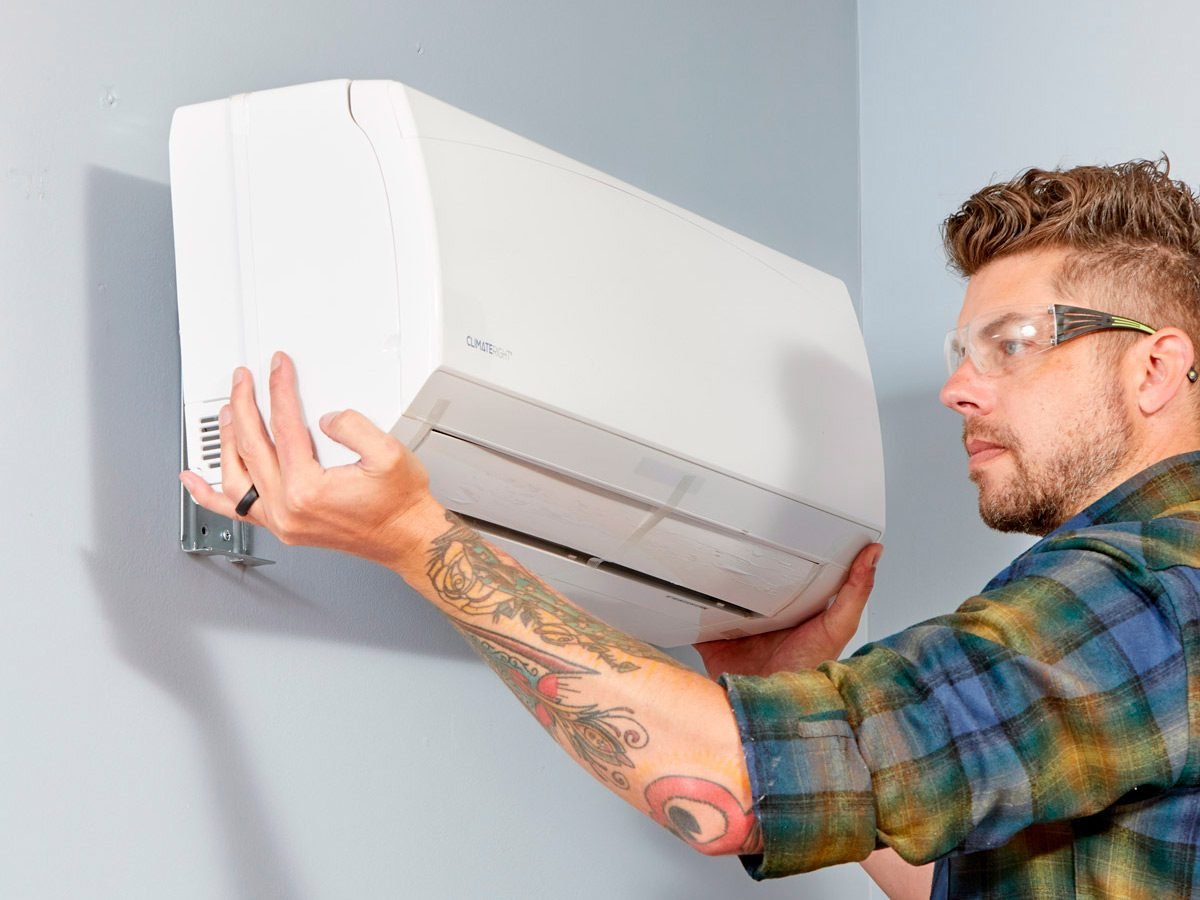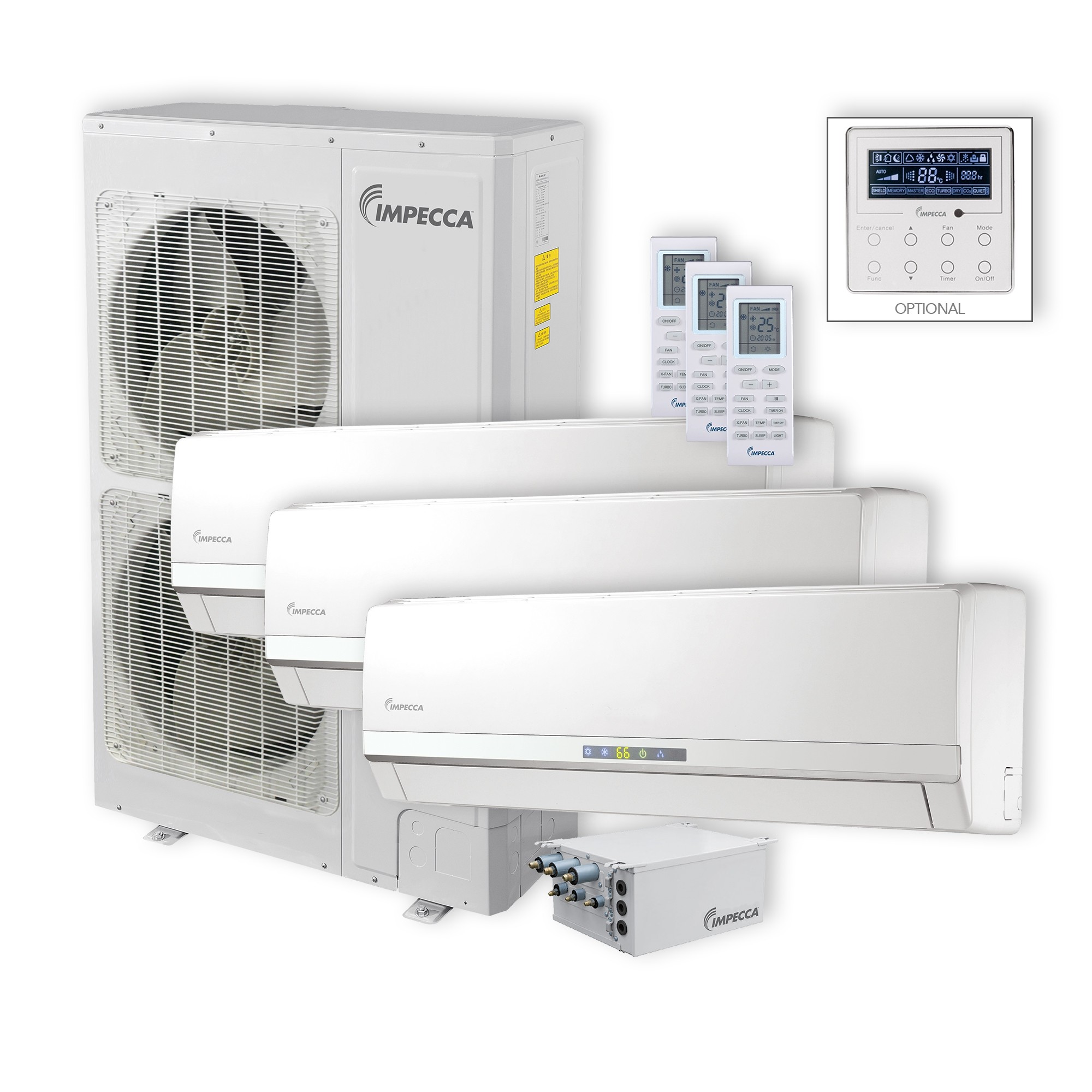The Science of Cool: Exactly How Air Conditioners Work
Envision your a/c unit as a master artist, adeptly sculpting away at the oppressive warmth in your home, leaving an awesome, comfortable oasis. Have you ever questioned just how this modern-day marvel attains such a feat?
The intricate dance of refrigerants, coils, compressors, and air ducts all work in harmony to develop that stimulating blast of cold air. However how specifically do these components integrated to produce that much-needed reprieve from the sweltering warm?
Let's uncover the internal operations of ac system and demystify the scientific research behind staying cool.
Key Takeaways

- Reliable A/cs utilize refrigerants to soak up and launch warm, enhancing air conditioning and power performance.
- Routine maintenance ensures optimum efficiency, long life, and energy financial savings.
- Proper sizing and layout prevent energy waste and ensure also cooling distribution.
- Understanding airflow dynamics and optimization improves cooling efficiency and comfort levels.
The Essentials of Cooling
Comprehending the fundamentals of air conditioning can greatly boost your knowledge of exactly how these systems operate effectively. Energy performance is a critical facet of air conditioning, as it not only influences your electrical power costs however additionally the setting. Effective air conditioning unit utilize less power to cool down a space, making them economical and environment-friendly. By investing in an energy-efficient device, you can take pleasure in a comfy indoor setting while reducing your carbon footprint.
Moisture control is another important feature of a/c. Air conditioning unit aid control the dampness levels in your house, producing an extra comfy atmosphere. Excess humidity can lead to mold and mildew growth and discomfort, while reduced moisture levels can create dry skin and respiratory system concerns. A properly maintained a/c unit can efficiently regulate humidity, ensuring a healthy and pleasant living setting for you and your family.
Recognizing exactly how cooling systems handle power performance and humidity control can help you make educated decisions when choosing and utilizing these systems in your house.
Understanding Cooling Agents and Their Duty
When it pertains to air conditioners, understanding cooling agents and their duty is essential. You'll find out about the value of cooling agents in cooling down systems and just how they promote the heat transfer process.
In addition, considering the environmental influence of cooling agents is vital for lasting air conditioning services.
Duty of Refrigerants
Cooling agents play an important role in the operation of air conditioning unit by helping with the transfer of heat. The performance of a cooling agent directly affects the cooling procedure and power usage of the system.
When taking into consideration cooling agents, it's crucial to consider their efficiency against their environmental implications. Some cooling agents contribute to ozone deficiency and global warming, prompting the look for greener alternatives. Sustainable procedures focus on searching for refrigerant options that are energy-efficient and have very little environmental impact.
Manufacturers are progressively buying creating new cooling agents that straighten with sustainability goals. By focusing on cooling agent efficiency and exploring lasting options, the a/c market intends to minimize its carbon footprint and lessen environmental damage.
Environmental Effect Factors To Consider
Considering the ecological impact of cooling agents is essential in examining the sustainability of cooling systems. When reviewing the ecological ramifications of ac system, two key elements to consider are power performance requirements and carbon impact evaluation.
- Power Efficiency Specifications:
Energy-efficient air conditioners take in less power, minimizing total power intake and ecological influence.
Carbon Impact Evaluation:
Carrying out a carbon footprint analysis assists in understanding the amount of greenhouse gas exhausts related to air conditioning operations.
Cooling agent Option:
Going with refrigerants with reduced International Warming Possible (GWP) can especially lower the ecological impact.
Correct Disposal:
Making sure appropriate disposal of old cooling agents stops them from harming the atmosphere.
Normal Maintenance:
Routine maintenance of air conditioning systems can improve performance, reducing energy usage and ecological influence.
The Process of Heat Transfer
When your ac system operates, it counts on a procedure of warmth transfer to cool your room successfully. This system entails the absorption of warm from the interior air and the exchange of thermal power to preserve a comfy temperature level.
Comprehending this essential aspect helps you comprehend just how air conditioning unit efficiently regulate the environment in your home.
Heat Absorption Device
To effectively cool the air in your space, air conditioners employ a warm absorption system that efficiently moves heat. This device plays a critical function in maintaining temperature law and utilizing sophisticated cooling technology.
Here's exactly how the warm absorption process works:
- Refrigerant Flow: The refrigerant soaks up warmth from the indoor air.
- Compression: The compressor enhances the pressure of the cooling agent, creating its temperature level to rise.
- Condensation: The hot, pressurized cooling agent releases heat outside as it condenses into a fluid.
- Growth Valve: This part reduces the cooling agent pressure, triggering it to cool and vaporize.
- Dissipation: As the cooling agent evaporates, it takes in heat from the interior air, starting the cycle once again.
Thermal Energy Exchange
In the procedure of thermal power exchange, warmth transfer plays an important function in just how a/c unit function to cool indoor rooms efficiently. Thermal dynamics determine that warmth constantly moves from a warmer area to a cooler one. A/c unit utilize this concept by removing warmth from interior air and releasing it outside, making use of cooling agents to facilitate the transfer.
Effective thermal energy exchange is crucial for the energy effectiveness of an a/c system. By enhancing warm transfer procedures, a/c can cool down rooms successfully while reducing energy usage. Recognizing the dynamics of heat transfer is vital for developing and running air conditioning unit that provide the preferred degree of comfort without unneeded energy wastefulness.
Evaporator Coils and Their Feature
Recognizing the function of evaporator coils is vital to realizing how air conditioning system successfully cool down indoor rooms. These coils play a crucial duty in the cooling procedure by taking in heat from the indoor air, which is after that flowed back as great air.
Right here are some bottom lines about evaporator coils:
- Evaporator coil efficiency directly influences the cooling performance of the ac system.
- These coils have cooling agent that evaporates as it takes in warm from the interior air.
- As the refrigerant vaporizes, it alters from a fluid state to a gas, cooling the air in the process.
- The cooled air is after that distributed throughout the space by means of the air ducts.
- Appropriate maintenance of the evaporator coils, such as normal cleaning, is essential to ensure top performance and energy performance.
Compressor and Condenser Workflow
Efficiently cooling indoor spaces includes recognizing just how the compressor and condenser work together in an a/c system. The compressor plays a crucial function in the cooling process by pressurizing the refrigerant gas, increasing its temperature level and power degree. This high-energy gas then streams to the condenser, where it releases warmth to the surrounding environment, triggering it to condense right into a high-pressure fluid.
The condenser additionally cools this liquid via warm exchange with the outdoors air, transforming it back into a low-pressure gas. This procedure improves power performance and enhances the system's cooling power. Temperature level regulation is achieved as the refrigerant cycles with these system parts, taking in warmth indoors and releasing it outdoors.
Air Ducts and Air Circulation
To optimize air movement and assurance regular air conditioning throughout your area, appropriate installment and upkeep of air ducts are vital. Ensuring that your duct are created effectively and in a way that advertises optimal air flow dynamics is crucial for the total performance of your cooling system. Air flow techniques play a significant role in maintaining interior comfort degrees, so it is necessary to take note of the following:
Air duct Design: Effectively created duct aid ensure that great air gets to every edge of your area effectively.
Air flow Dynamics: Recognizing exactly how air steps through the air ducts can aid you identify any prospective problems that may disrupt the cooling process.
Routine Upkeep: Keeping your air ducts tidy and without blockages is necessary for maintaining airflow and system performance.
Securing Leakages: Making sure that there are no leaks in your ductwork assists avoid awesome air from running away, boosting power performance.
Stabilizing Air movement: Properly balancing the air flow in different rooms can help keep consistent cooling throughout your office or home.
Often Asked Concerns
How Does the Size of an Air Conditioning Unit Affect Its Efficiency and Air Conditioning Ability?
When choosing an air conditioning unit, bear in mind that dimension issues. A system that's also little may struggle to cool your area effectively, while a large one could throw away power and not evaporate appropriately. Guaranteeing correct sizing factors to consider will improve performance and cooling capability.
The ideal dimension straight influences performance, helping you remain comfortable without unnecessary expenses. So, when it pertains to air conditioning unit, remember size for best performance and cooling down power.
What Are Some Typical Maintenance Jobs That Can Aid Improve the Life Expectancy of an Air Conditioner?
Routine upkeep jobs can substantially extend the life of your air conditioning unit. Keep in mind to replace filters to ensure appropriate air movement and clean coils to boost cooling down effectiveness.
Additionally, calibrate your thermostat for precise temperature level readings and check the cooling agent degrees for ideal performance.
Can Air Conditioners Be Utilized combined with Other Cooling Approaches, Such as Fans or Dehumidifiers?
Yes, you can enhance your air conditioning experience by integrating your air conditioner with fans. This cooperation can help flow trendy air better, giving an extra comfortable atmosphere and potentially saving energy.
Furthermore, utilizing a dehumidifier together with your air conditioning unit can improve cooling down effectiveness by reducing humidity levels, making your room really feel cooler.
Consider these options to enhance your air conditioning configuration and enhance your general convenience throughout warm days.

Are There Any Type Of Environmental Concerns Connected With using Air Conditioners, and How Can They Be Mitigated?
When utilizing ac unit, bear in mind environmental problems like energy consumption and greenhouse gas exhausts.
To reduce these concerns, take into consideration sustainable cooling approaches and eco-friendly choices.
You can lower the impact of ac system by using energy-efficient versions, preserving them on a regular basis, and including other cooling down methods like followers or dehumidifiers.
What Advancements Are Being Made in Air Conditioning Technology to Make Units More Energy-Efficient and Eco-friendly?
To make a/c more energy-efficient and green, advancements like smart technology and green features are being created. These developments concentrate on increasing power cost savings and minimizing ecological effect.
By incorporating smart innovation, a/c devices can optimize performance based on use patterns. ac service The use of eco-friendly products and elements also contributes to making these systems a lot more sustainable.
These advancements intend to improve efficiency while decreasing the ecological footprint of air conditioning innovation.
Final thought
So, currently you recognize just how air conditioners function!
From the refrigerants distributing through the system to the warm transfer procedure, each component plays a crucial role in maintaining you cool down.
The evaporator coils take in heat, the compressor and condenser launch it, and the air ducts distribute the trendy air throughout your space.
Next time you activate your air conditioning, bear in mind the science behind everything! Stay amazing!